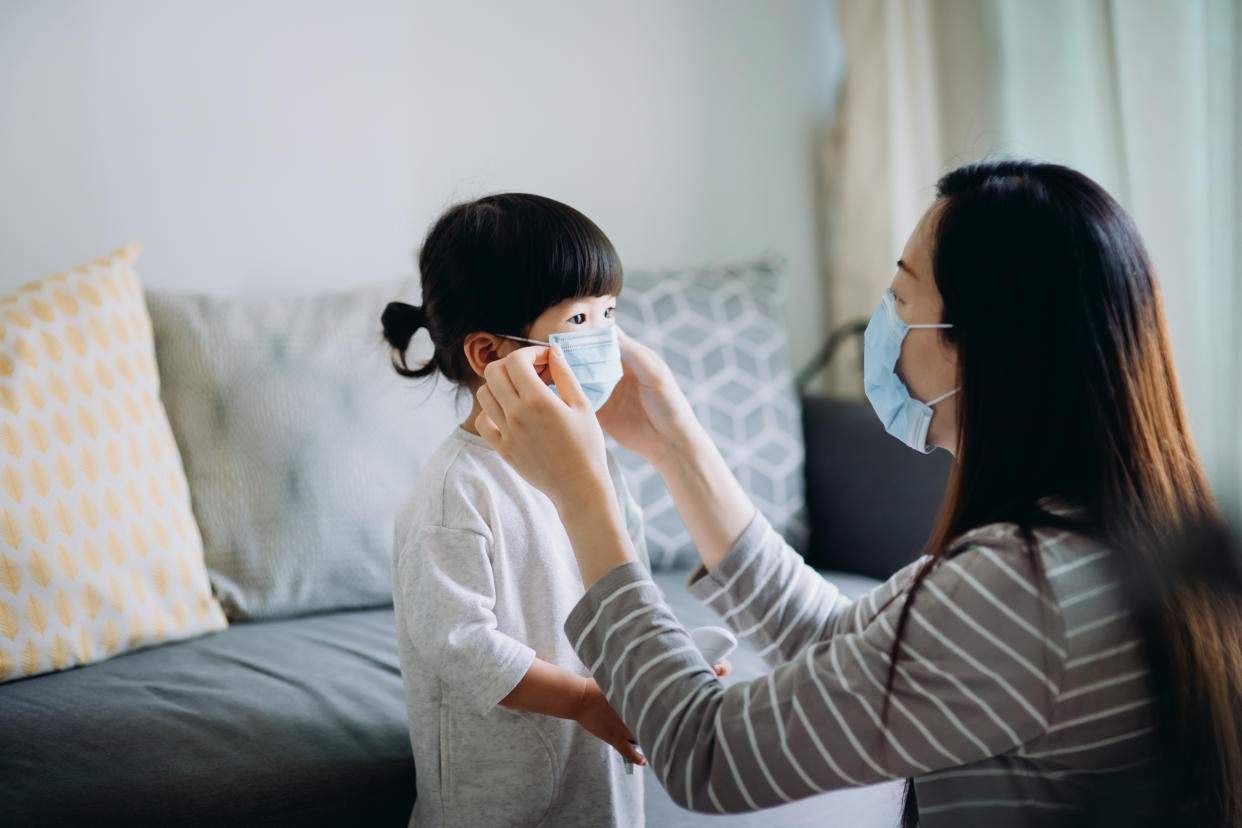Living with young children linked to 25% reduced risk of dying with coronavirus, study suggests

Living with young children may ward off coronavirus complications and even death, research suggests.
Since the infection emerged at the end of 2019, experts have wondered what role children play in spreading the virus.
Schools, nurseries and colleges were shut at the height of the UK’s first lockdown, with some calling for the extreme action to be taken once more as people in England prepare to spend the next month at home.
Statistics have repeatedly shown the vast majority of children do not become seriously ill with the coronavirus, with one study even suggesting they are around half as likely to catch it in the first place.
After looking at more than 9 million adults aged 65 or under, scientists from the London School of Hygiene and Tropical Medicine found living with a child younger than 11 was linked to a 25% reduced risk of dying with the coronavirus.
Read more: 'Robust' immune response six months after overcoming mild coronavirus
The coronavirus is one of seven strains of a virus class that are known to infect humans. Four of these strains cause common cold-like symptoms.
It has been suggested children may be more protected against the coronavirus due to them being exposed to these cold-like viruses, potentially transferring this immunity to other members of their household.

“Adults who live with children have more frequent colds; about 30% of those are seasonal coronaviruses,” said study author Dr Laurie Tomlinson.
The preliminary results have been published on medRxiv, “the preprint server for health sciences”, and are yet to appear in a peer-reviewed journal.
Working on behalf of NHS England, the scientists analysed millions of patients registered with a GP, representing around 40% of the country.
Between 1 February and 3 August, the team looked at hospital data, intensive care admissions and death statistics among people with and without the coronavirus.
Read more: App could detect asymptomatic coronavirus
Results suggest that among the more than 9 million adults studied, living with a child younger than 11 was not linked to an increased risk of catching the coronavirus.
Among the adults who tested positive for the infection, residing with a young child was not associated with an increased risk of hospitalisation or intensive care admission.
It was linked, however, with a reduced risk of a coronavirus-related death.
The scientists took into account other factors that may influence an adult’s risk of coronavirus complications, like underlying health conditions and smoking.
Watch: Can you catch coronavirus twice?
The results further found living with a child aged 12 to 18 was associated with an 8% increased risk of catching the coronavirus, but not becoming seriously ill.
Residing with a child of any age was linked to a 27% to 32% reduced risk of dying from a non-coronavirus cause.
The scientists wondered if a healthy person may be more likely to become a parent in the first place.
People who live with children may also be less likely to smoke or have other unhealthy habits.
Read more: Social distancing leading to surge in dengue cases in Thailand
In a second part of the experiment, the team looked at more than 2.5 million adults aged over 65.
They found no link between an older person living with a child and catching the coronavirus or developing its complications.
Schools were open at the beginning of the study, closing on 20 March except for vulnerable children and those whose parents are key workers.
To better understand the impact of this, the scientists compared infection rates and complications among adults living with children before schools shut to 3 April, three weeks after the gates closed.
“We observed no consistent changes in risk [for adults] following school closure,” wrote the scientists.
They stressed, however, the bulk of their research was carried out while the majority of children were at home.
Firm conclusions therefore cannot be drawn on the risk of a child infecting their household as they continue to attend school during the second lockdown.
Nevertheless, the scientists summarised: “For adults living with children there is no evidence of an increased risk of severe COVID-19 [the disease caused by the coronavirus] outcomes.
“These findings have implications for determining the benefit-harm balance of children attending school in the COVID-19 pandemic.”
Watch: What is long COVID?



